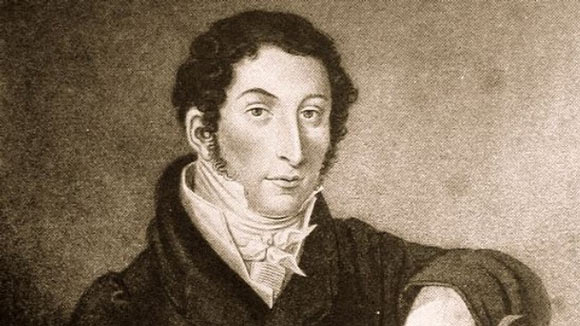In the realm of classical music, Carl Maria von Weber stands as a towering figure of the Romantic era. His innovative compositions and profound influence on the development of German opera have solidified his place in musical history. Join us as we delve into the life and works of this remarkable composer, exploring his artistic journey, notable achievements, and lasting legacy.
Early Life and Musical Upbringing:
Born on November 18, 1786, in Eutin, a small town in northern Germany, Carl Maria von Weber was destined to become a musical prodigy. His father, Franz Anton von Weber, was a talented musician and composer, and it was under his guidance that Carl Maria began his musical education. At the age of six, he showcased his extraordinary talent by performing his own piano compositions publicly.
Weber’s formal training began in earnest when he moved to Salzburg, Austria, to study music theory with Michael Haydn. He later continued his studies in Munich, where he honed his skills as a pianist and composer. Weber’s early works revealed his knack for integrating folk music elements and creating vibrant melodies that would later become hallmarks of his compositional style.
Career and Achievements:
Weber’s career as a composer gained momentum when he was appointed Kapellmeister (music director) at the Breslau Opera in 1804. During his tenure, he composed several operas, including “Rübezahl” and “Silvana,” which showcased his ability to blend German romanticism with Italian opera traditions.
However, it was his groundbreaking opera “Der Freischütz” (The Marksman) that brought Weber widespread recognition and established him as a leading figure in German opera. Premiered in Berlin in 1821, “Der Freischütz” captivated audiences with its haunting melodies, supernatural themes, and innovative orchestration. It marked a turning point in opera, introducing elements of German folklore and paving the way for the rise of Romantic opera in the years to come.
Weber’s subsequent opera, “Euryanthe,” pushed the boundaries of musical storytelling even further. Despite facing initial criticism, the opera showcased Weber’s mastery of dramatic music and deeply expressive melodies. Although “Euryanthe” did not attain the same level of popularity as “Der Freischütz,” its influence on later composers, including Richard Wagner, cannot be overstated.
Legacy and Influence:
Carl Maria von Weber’s contributions to the world of music extended far beyond his own compositions. As a conductor, he played a pivotal role in introducing works by Ludwig van Beethoven to audiences in Germany, fostering a deep appreciation for the composer’s music. Weber’s influence also extended to future generations of composers, including Mendelssohn and Wagner, who were inspired by his innovative approach to opera.
Weber’s impact on instrumental music cannot be overlooked either. His concertos for piano, clarinet, and bassoon exemplify his ability to compose for specific instruments, highlighting their unique qualities while showcasing his own virtuosity as a performer.
Sadly, Weber’s life was cut short by illness, and he passed away on June 5, 1826, at the age of 39. Nevertheless, his legacy lives on through his works, which continue to be performed and cherished by musicians and audiences worldwide.
Conclusion:
Carl Maria von Weber’s artistic journey and contributions to music were nothing short of remarkable. From his early days as a child prodigy to his influential works in opera and instrumental music, Weber left an indelible mark on the Romantic era. Through his innovative compositions and his advocacy for German opera, he paved the way for future generations of composers to explore the realms of emotion, storytelling, and musical expression. Today, Weber’s music remains a testament to his genius and serves as an inspiration for aspiring musicians and lovers of classical music around the globe.


Comments are closed